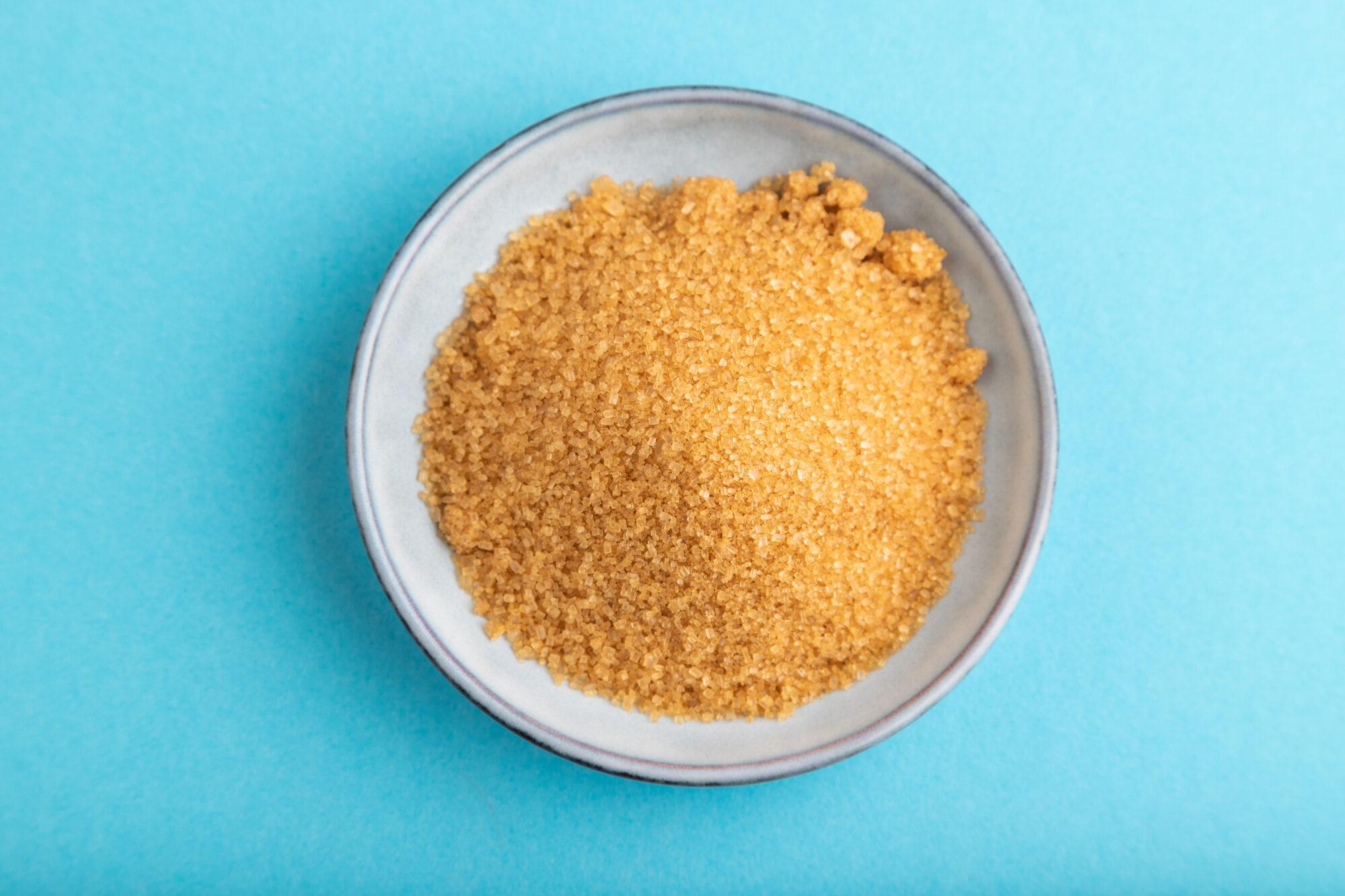
Your Monk Fruit Questions, Answered

plate with unrefined golden cane sugar on blue pastel background. top view, flat lay, close up.
Monk fruit is a good choice for sweetening foods and beverages on a low-carb or keto diet. Research on the effects of monk fruit in humans is scarce, but evidence suggests it is safe and has no effect on blood sugar or insulin.
Monk fruit sweeteners are gaining popularity among keto dieters and the general public alike. They’re starting to appear in more ingredient lists for everything from yogurt to barbecue sauce. Let’s take a closer look at this relative newcomer to the keto sweetener world.

What is monk fruit?
Monk fruit is a sweetener derived from the dried fruit of Siraitia grosvenorii – a small melon native to southern China. It is also called Lo Han Guo or Lo Han Kuo. Monk fruit extract is 100-250 times sweeter than sugar. (Some sources say as much as 300 times sweeter.) The sweetness comes from compounds in monk fruit called mogrosides, which can also impart bitter or metallic flavors.
By itself, monk fruit extract provides no calories and is therefore considered a “non-nutritive sweetener.” But because monk fruit is so concentrated, and also because of the potentially bitter flavor, monk fruit is often sold blended with other sweeteners, most commonly erythritol. On its own, monk fruit is not known to cause gas, bloating, or other unpleasant GI effects that are common problems from overconsuming sugar alcohols, but these could result if you overdo a monk fruit-sugar alcohol blend.
Is monk fruit natural?
Monk fruit can be considered a “natural” sweetener since it comes from a plant. So, people who prefer to avoid artificial sweeteners (like sucralose, aspartame, or saccharin) may opt for monk fruit, but it’s not as utopian as you might think. Commercially sold monk fruit sweeteners are not simply dehydrated monk fruit pulverized into powder. Sweeteners derived from monk fruit are produced through a multi-step process that extracts the desired compounds, removes unwanted elements, and refines and purifies the final product. So, monk fruit may be “natural,” but that doesn’t mean it’s unrefined. If you are mainly interested in the metabolic effects of what you consume and the degree of processing or refinement is less of a concern, then monk fruit is a reasonable choice.

Is monk fruit safe?
Monk fruit has been used in China for hundreds of years to treat sore throats and coughs and for other medicinal purposes. The U.S. Food & Drug Administration (FDA) granted monk fruit GRAS status (Generally Recognized as Safe) in 2011. However, there’s surprisingly little long-term data in humans regarding monk fruit consumption. The majority of research has been conducted in mice and rats, and in vitro. In animal experiments, monk fruit appears to have possible blood sugar and lipid lowering effects, but the doses used were orders of magnitude greater than you would get from using even very generous amounts of monk fruit sweetener. Animal research suggests that monk fruit is non-toxic at high levels of exposure.
Is monk fruit safe for people with diabetes?
If you have a medical condition defined by persistently high blood sugar, then it’s a no-brainer to stay away from foods and beverages that raise blood sugar. One paper states, “Since the human body does not recognize mogrosides as carbohydrates or sugars, they do not trigger an insulin response.” It is reasonable to expect that monk fruit should not affect blood sugar or insulin in people with or without diabetes. If you prefer to feel more confident about your body’s response to monk fruit, simply use a glucometer or CGM (continuous glucometer) to see how it affects you.
Be sure to read labels when purchasing monk fruit sweetener. Different brands use different bulking agents and compounds to tame the bitterness of monk fruit. For example, one brand blends monk fruit with maltodextrin, which some keto dieters choose to steer clear of. Look for brands that combine monk fruit with erythritol if you prefer, or opt for liquid monk fruit sweeteners, which don’t contain these additives.
Summing up
If you prefer to avoid artificial sweeteners, monk fruit is a good choice for sweetening foods and beverages on a low-carb or keto diet. Research on the effects of monk fruit in humans is scarce, but evidence suggests it is safe and has no effect on blood sugar or insulin.




